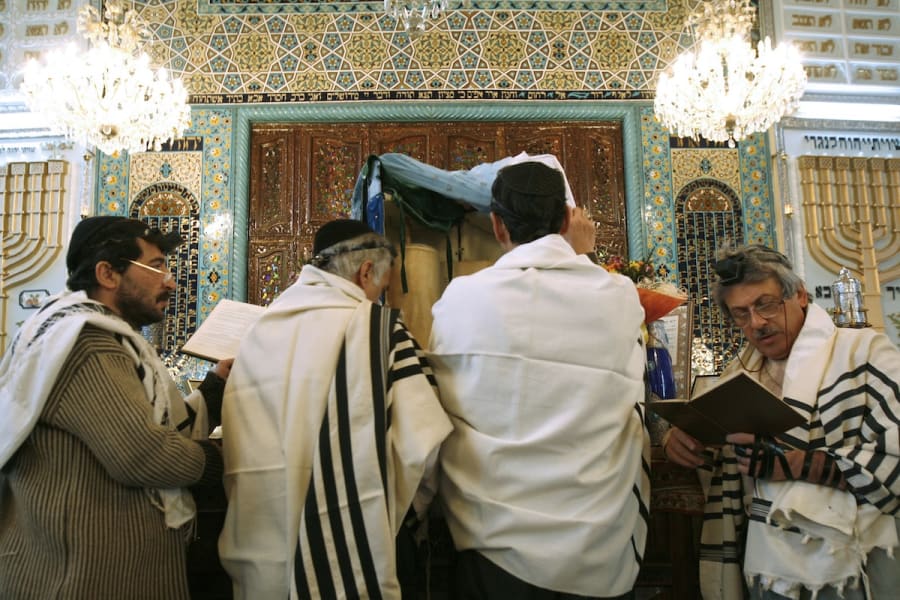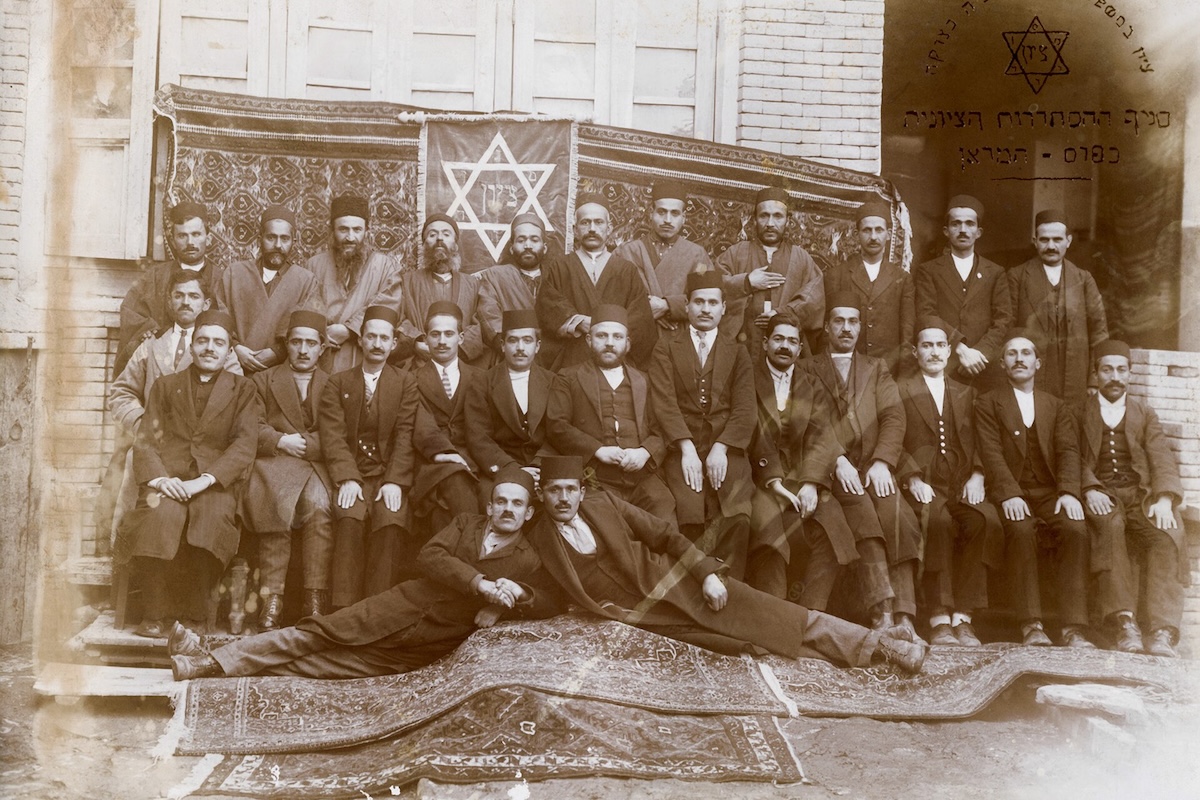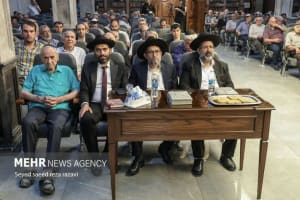Jews of Iran remain hopeful after 12 days of war: 'It’s the end of a dark era'

It’s a potentially surprising fact that there are still Jewish people living in Iran. The Jewish community is about 9,000 strong, according to the Jewish News Syndicate. Iran expert and former Israeli intelligence officer, David Nissan, was born and raised in Tehran. He explained their current predicament: “Jews in Iran face increased suspicion, yet they remain deeply proud of their heritage.”
“There are 30 active synagogues, Jewish schools, kosher butcheries and restaurants, and even a matzah factory. Jews don’t suffer from persecution or harm and are permitted to maintain their Jewish lifestyle without interference. Their rights as an official religious minority in Iran are protected by law and constitution, and they even have a representative in parliament,” he added.
The community choosing to remain in the Iranian city of Shiraz after the Islamic revolution is about 7,000 strong according to an Iranian Jew, Noga, who now lives in New York. However, even the hint of ties to the “the Zionist regime” can lead to harsh reprisals.
Another Iranian Jew living in Haifa, northern Israel, spoke with Ynet News about what she was hearing from friends in Shiraz and Tehran during the 12-day conflict – the conspicuous silence.
Zahava received news about her childhood friend via her sister in Shiraz.
“In Persian, she wrote that the police had taken the cantors and rabbis in for questioning. They were suspected of collaborating with Israel. To this day, we don’t know if they’ve been released,” she said.
“She told us it’s best not to contact the Jews there right now – the situation is extremely fragile. We used to be in touch daily. There’s a very active WhatsApp group that keeps everyone updated, but since the war started, there’s been complete silence.”
"The Jews are staying inside, too afraid to go out for fear it could cost them their lives,” Zahava continued, adding that any contact with them could be dangerous. “We’re careful not to reach out, to avoid giving the regime any excuse to harm them,” she said.
Noga also described the delicate balance that Jews in Iran must maintain, being accepted as a religious minority, while any association with Israel remains strictly taboo. “The ayatollah spoke about ‘Zionist spies’ and made statements like, ‘We will catch the traitors, deal with their families and not let them continue to live.'”
“The issue is with the regime and its deep suspicion of anyone with ties to Israel. The government doesn’t hate Jews – it fears Zionists,” Noga explains, adding that Jewish people there can be educated, employed and respected by the Muslim majority. “In normal times – so long as Jews don’t stand out, keep a low profile and live quietly – life there is actually quite good. Business is good, the food is great, families are together and they enjoy a fair amount of freedom.”
However, these are not normal times.
“When there’s a conflict in Israel, the government forces the Jews to publicly declare that they’re against Zionism,” she said. “It’s the regime’s way of separating Judaism from Zionism – showing that the Jews are loyal to Iran. And when Iranian leaders issue threats against ‘collaborators with the Zionists,’ the fear can be paralyzing.”
"Because of my ties to Israel, I personally avoid calling them. Most of the contact is through cousins who’ve never been to Israel. We’re certain that Iran’s intelligence services keep a kind of ‘blacklist’ – they know exactly which Jews have ties to people connected to Israel, and who doesn’t.”

Noga explained that conversations with relatives in Iran are typically limited, focusing only on light, non-sensitive topics, particularly during the war with Israel. To discuss current events, they adopted coded language, avoiding any content that could raise suspicion.
"The questions come from the world of weather – it’s how we understand if things are good or bad: Is it stormy or cold? Hot or is a storm coming? And the answer might be something like, ‘Right now things are okay, but we heard tomorrow there’ll be a flood,’ or, ‘An earthquake is expected.’ That’s how I gather information about how they’re really doing in sensitive times,” she explained.
"But if you do anything that draws attention, even the wealthy, influential Jews are not protected from the regime.”
In the wake of the 12-day war, now halted by the ceasefire, Noga’ described a quiet but enduring hope.
“Sometimes my husband and I watch the news and cry. All of us – even Iranian Jews themselves – feel that finally, Israel is doing what maybe it should have done 30 years ago. So we’re watching both fronts with anxiety and heartbreak but what is happening in Israel is more painful. My son, my brother and my cousins live in Israel. I hear how they run in fear with their small children to bomb shelters in the middle of the night. And it hurts.”
Still, she and others dream of a future beyond the fear. “There’s even a joke going around among us – ‘Passover 2026, we’re all celebrating in Shiraz.’ That’s how confident we are that Israel will finish them off once and for all, and finally free our brothers in Iran.”
Noga remains hopeful – not just for a ceasefire, but for a lasting peace that will mark the end of an era of fear.
“We’re dreaming of the day after – the day we’ll all sit together in living rooms, whether in Israel, America or Iran, and tell our grandchildren and great-grandchildren about the historic miracle that Israel made happen. How, in just a few days – God willing – the Israelis gave us back our country. How they freed them from the mullahs. Look, we’re in the middle of a war. People still don’t grasp what an enormous favor the State of Israel is doing for the whole world by eliminating the head of the snake. It’s the end of a dark era.”

Jo Elizabeth has a great interest in politics and cultural developments, studying Social Policy for her first degree and gaining a Masters in Jewish Philosophy from Haifa University, but she loves to write about the Bible and its primary subject, the God of Israel. As a writer, Jo spends her time between the UK and Jerusalem, Israel.
You might also like to read this:















